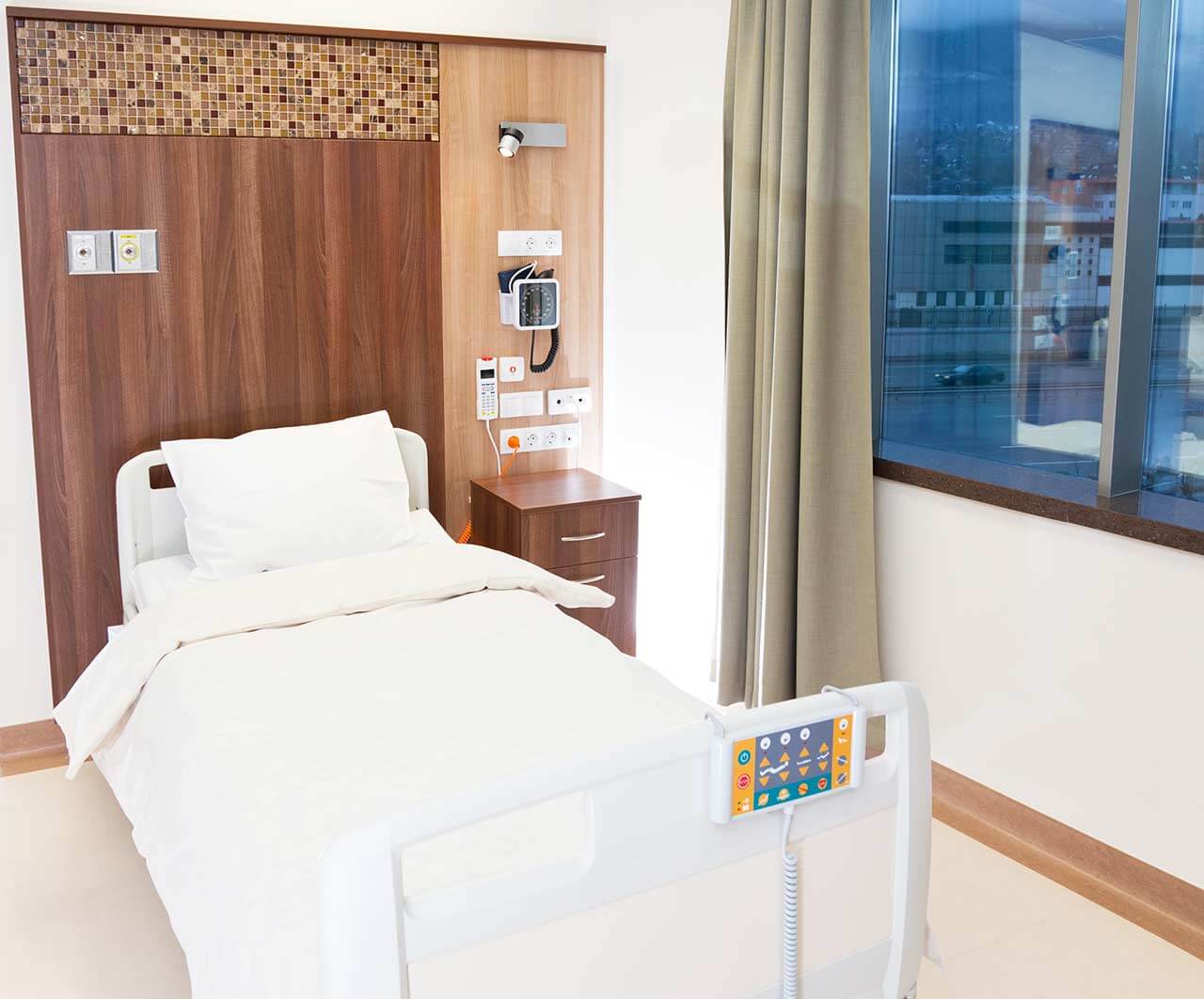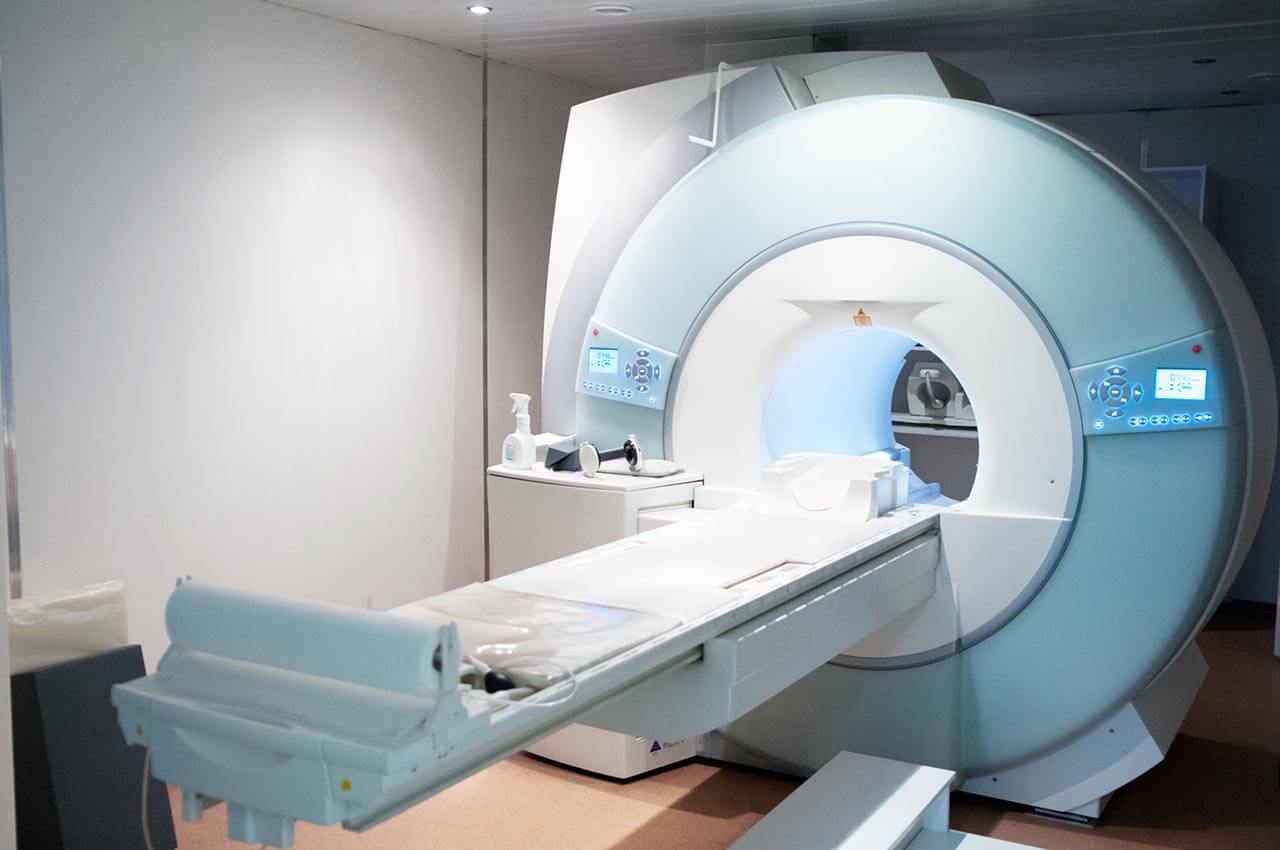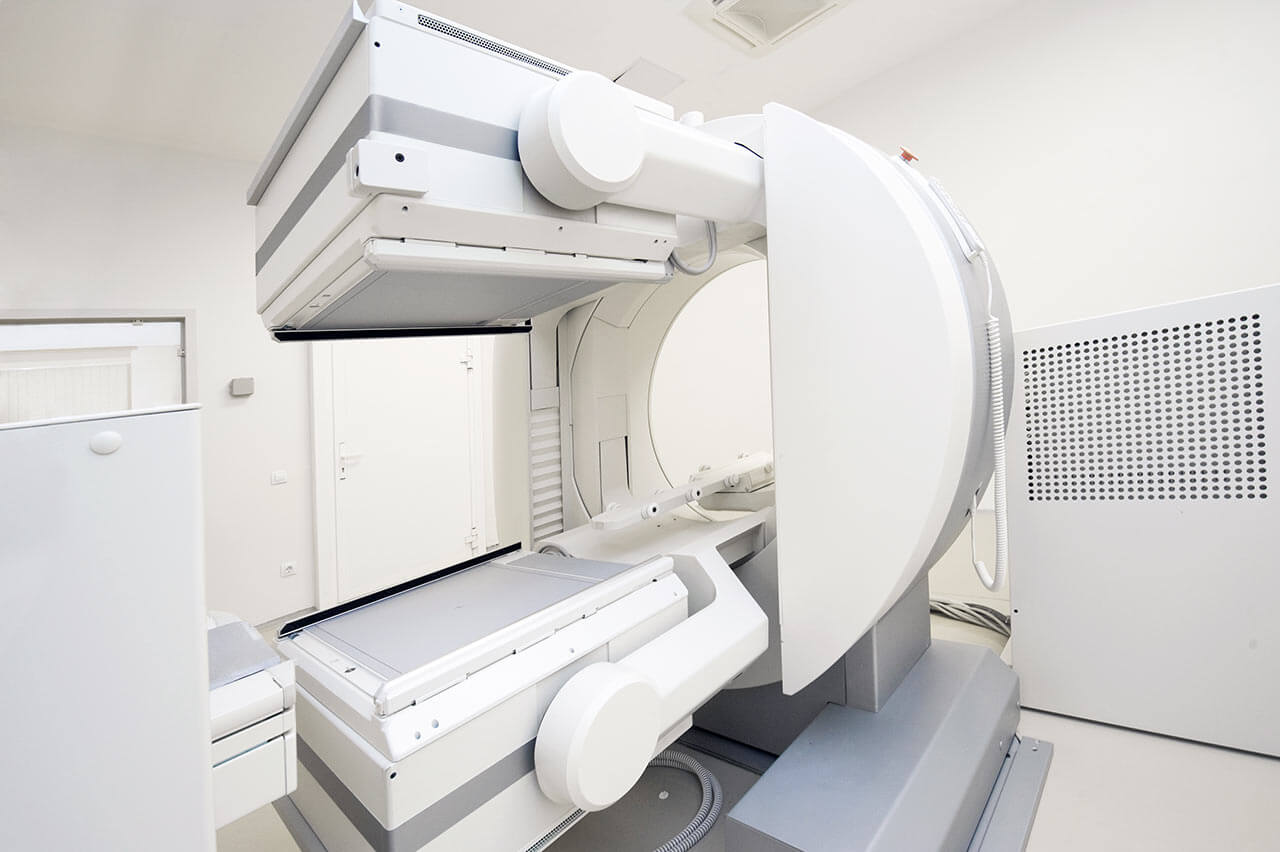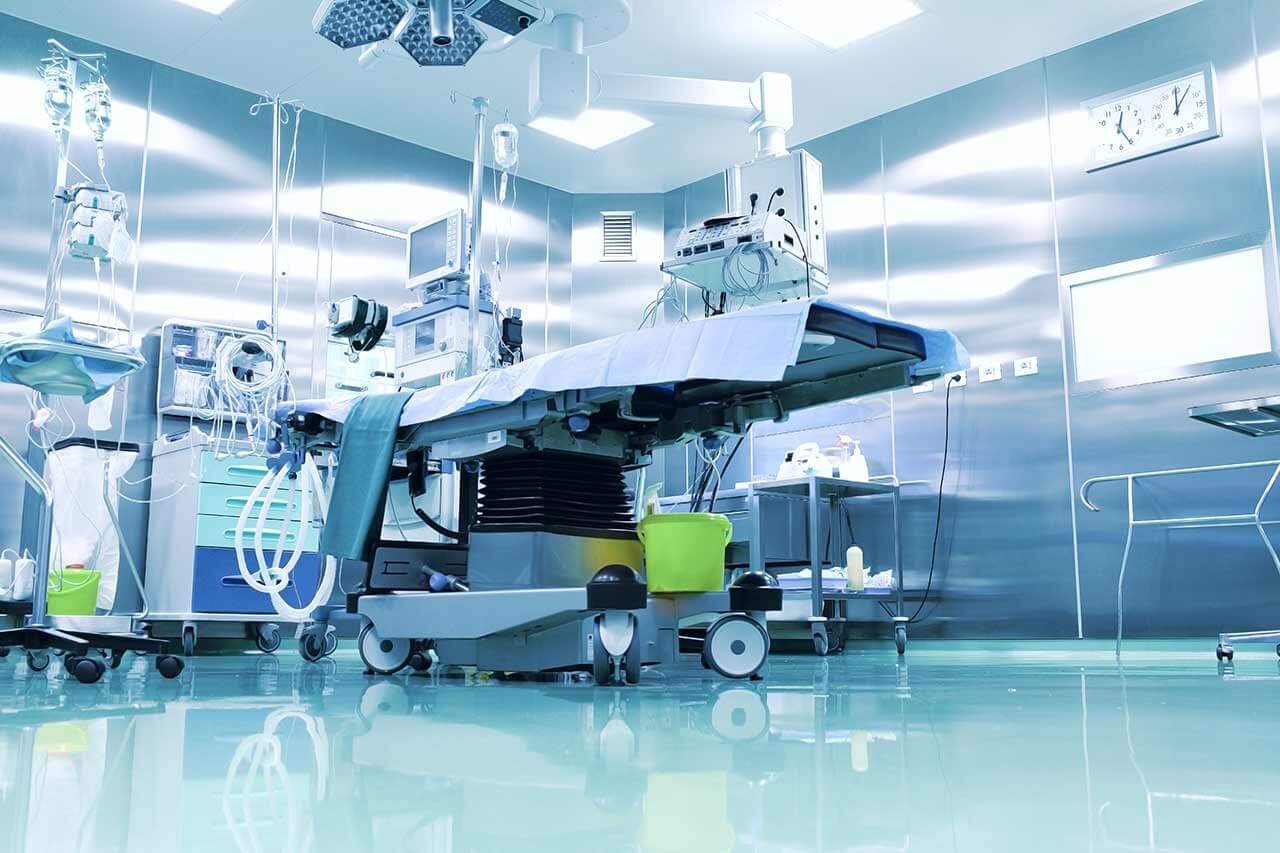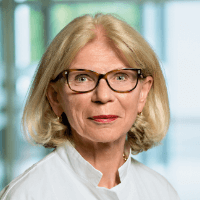
The program includes:
- Initial presentation in the clinic
- clinical history taking
- review of medical records
- physical examination
- laboratory tests:
- complete blood count
- general urine analysis
- biochemical analysis of blood
- TSH-basal, fT3, fT4
- tumor markers
- inflammation indicators
- indicators of blood coagulation
- CT / MRI of the abdomen and retroperitoneum
- abdominal and retroperitoneal ultrasound scan
- full curse of radiotherapy
- nursing services
- consultations of related specialists
- explanation of individual treatment plan
How program is carried out
During the first visit, the doctor will conduct a clinical examination and go through the results of previous laboratory tests and instrumental examinations. After that, you will undergo an additional examination, including complete blood count, laboratory assessment of liver and kidney function. Based on the received results, the physician will conduct radiotherapy planning with the help of CT or MRI, make the permanent tattoo marks on the skin and conduct CT simulation in order to assess the accuracy of the rays and the radiation dose. If necessary, related medical specialists will be involved in the elaboration of a treatment regimen (tumor board).
Radiation therapy is carried out as the day hospital procedure, without mandatory admission to the hospital. At each visit, the physician will assess your general condition and the marks on the skin. After that, you will be placed in a shielded radiation therapy room, on a special table.
Each radiation therapy session lasts less than half an hour (including preparation). All this time, doctors and nurses are monitoring your condition, you can communicate with them through a loudspeaker. The procedure is completely painless. Depending on the planned course of treatment, you will visit the hospital from 1 to 3-5 times a week.
After the completion of the radiation therapy course, you will undergo control examinations aimed at assessing your condition and efficacy of treatment. After that you will receive the medical report with detailed recommendations regarding further follow-up and treatment. In the future, you will be able to have a distant consultation with your attending physician and schedule the next course of treatment, if necessary.
Required documents
- Medical records
- MRI/CT scan of the abdomen and pelvis (not older than 3 months)
- Biopsy results (if available)
Service
You may also book:
 BookingHealth Price from:
BookingHealth Price from:
About the department
According to the Focus magazine, the Department of Adult and Pediatric Radiation Therapy, Radiation Oncology at the University Hospital Marburg UKGM ranks among the best German medical facilities in the field of radiation therapy!
The department offers all modern types of radiation therapy for cancer patients. The unique offer of the department is proton therapy, which is carried out within the framework of the specialized center. The department treats about 2,000 patients every year. Preference is given to an individual approach to each clinical case. Therapy is provided in strict accordance with the protocols of the German Cancer Society. The department is headed by Prof. Dr. med. Rita Engenhart-Cabillic.
In addition to such advanced forms of radiation therapy as intensity-modulated radiation therapy, volumetric modulated arc therapy, 3D conformal radiation therapy, the department's tasks include stereotactic procedures on the brain, lungs, liver, as well as all forms of brachytherapy. The department’s doctors also specialize in the treatment of benign joint diseases.
To conduct effective radiation therapy, the department has cutting-edge technical equipment. This includes 3 modern linear accelerators manufactured by SIEMENS and ELEKTA (PINNACLE radiation planning program based on CT scans) for electron and photon irradiation, stereotactic equipment by Leibinger for treating brain tumors, which works in conjunction with RADIO SURGERY and VIRTOUSO irradiation planning systems, medical devices by Nucletron for intracavitary and interstitial radiation therapy (PLATO and Ocentra Prostate planning systems). When conducting radiation therapy for prostate tumor, the location of the tumor and nearby organs is determined by rectal ultrasound. The amount of "radioactive seeds" with iodine-125 for prostate cancer treatment is determined using the Varian VariSeed radiation planning system.
The service range of the department includes:
- 3D conformal radiation therapy
- Palliative radiation therapy
- Lung, liver and brain metastases
- Lung tumors
- Bleedings caused by tumors (for example, gynecological ones)
- Brachytherapy
- Prostate cancer
- Gynecological tumors (for example, uterine cancer)
- Anal cancer
- Esophageal tumors
- ENT tumors
- Stereotactic procedures (radiosurgery)
- Metastases
- Brain tumors (for example, gliomas, ependymomas and medulloblastomas)
- Benign brain tumors (for example, meningiomas, neuromas)
- Pituitary adenomas
- Vascular malformations
- Intensity-modulated radiation therapy
- Certain types of ear, throat and nose tumors
- Certain types of prostate cancer
- Irradiation for benign diseases
- Heel spur
- Rhizarthrosis and arthrosis of other joints of the hands and fingers
- Golfer's elbow/tennis elbow
- Frozen shoulder
- Knee arthrosis
- Hip arthrosis
- Intraoperative radiation therapy
- Image-guided radiation therapy
- Proton therapy (within the framework of a specialized center)
- Head tumors
- Meningiomas
- Gliomas of WHO Grade II-III, residual or recurrent glioblastoma
- Pituitary adenomas (inoperable, untreatable with radiosurgery)
- Craniopharyngioma
- Acoustic neuroma (inoperable, untreatable with radiosurgery)
- Cerebral arteriovenous malformations
- Otolaryngological tumors
- Adenoid cystic carcinoma
- ENT tumors, especially nasal tumors
- Thoracic organs
- Lung cancer (inoperable I-III stages)
- Pleural mesothelioma (inoperable I-III stages)
- Esophageal carcinoma
- Abdominal tumors
- Hepatocellular carcinoma
- Pancreatic cancer (localized, progressive)
- Pelvic tumors
- Gynecological malignancies
- Prostate cancer
- Recurrence of colorectal cancer
- Sarcomas
- Paraspinal sarcomas/carcinomas
- Skull base chordoma/chondrosarcoma
- Axial skeleton osteo-/chondrosarcomas (inoperable)
- Trunk soft tissue sarcomas/chordomas
- Limb soft tissue sarcomas/chordomas
- Pediatric tumors
- Ependymomas
- Retinoblastomas
- Medulloblastomas
- Gliomas
- Lymphomas
- Sarcomas
- Neuroblastomas
- Germ cell tumors
- Craniopharyngiomas
- Other tumors in children
- Head tumors
- Other types of radiation therapy, other diseases
Photo of the doctor: (c) UKGM - Universitätsklinikum Gießen und Marburg GmbH
About hospital
The University Hospital Marburg UKGM offers patients modern diagnostics and comprehensive therapy at the international level. As a maximum care hospital, the medical facility specializes in all fields of modern medicine ranging from ophthalmology to traumatology and dentistry. The main areas of specialization of the hospital are surgery, neurosurgery, oncology, nephrology with kidney transplantation and children's medicine.
The hospital is the third largest in Germany. Every year, more than 436,000 patients are treated in two locations of the hospital (Giessen and Marburg): 342,000 in outpatient and 94,000 inpatient settings. The medical facility is the first privatized university hospital in the country.
The hospital staff makes a significant contribution to the development of research activities at the Faculty of Medicine of the Justus Liebig University Giessen and the Philipps University of Marburg. To develop new diagnostic and therapeutic methods, as well as to implement them into clinical practice, the specialists maintain active cooperation in a large number of areas.
The widest range of diagnostic and therapeutic services, the advanced infrastructure and technical base, high quality of treatment and professionalism of health workers contribute to the fact that the medical facility has an excellent reputation not only in Germany, but also far beyond its borders.
Photo: (c) depositphotos
Accommodation in hospital
Patients rooms
The patients of the University Hospital Marburg UKGM live in comfortable single and double rooms made in a modern design and light colors. Each room has an ensuite bathroom with shower and toilet. The pediatric departments provide patient rooms for the joint accommodation of mother and child. The standard room furnishing includes an automatically adjustable bed, bedside table, wardrobe, TV, telephone.
Meals and Menus
The patients of the hospital are offered balanced, healthy three meals a day: buffet breakfast, lunch and dinner. The private kitchen, certified according to DIN EN ISO 9001: 2000, is responsible for providing patients with food and drinks.
If for some reason you do not eat all foods, you will be offered an individual menu. The hospital also has a cafeteria with a large assortment of hot and cold drinks, snacks and desserts.
Further details
Standard rooms include:
Television
All patient rooms are equipped with TV sets. If you have some questions about TV use, please contact medical personnel.
Religion
Religious services can be provided upon request.
Accompanying person
During an inpatient program, an accompanying person can stay with you in a patient room or in a hotel of your choice.
Hotel
During the outpatient program, you can stay at the hotel of your choice. Our managers will help you choose the most suitable option.
